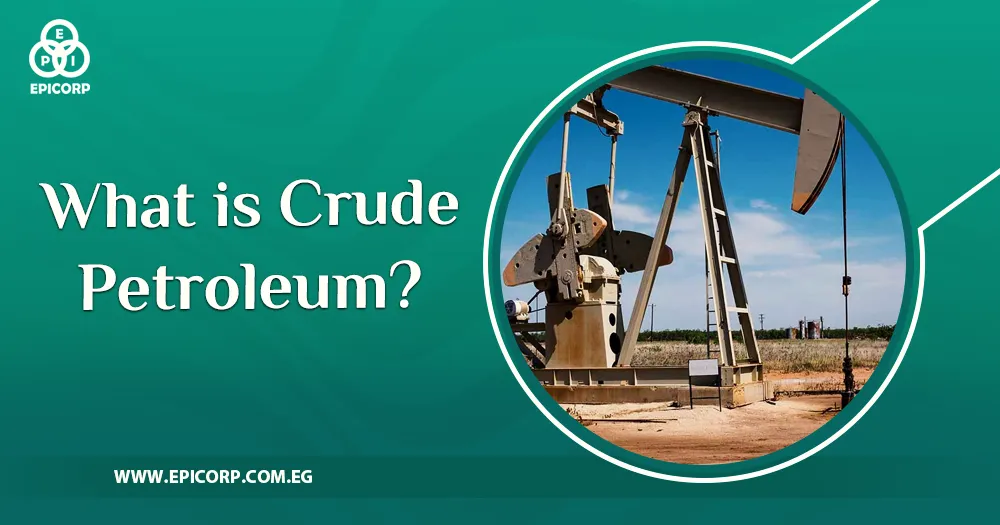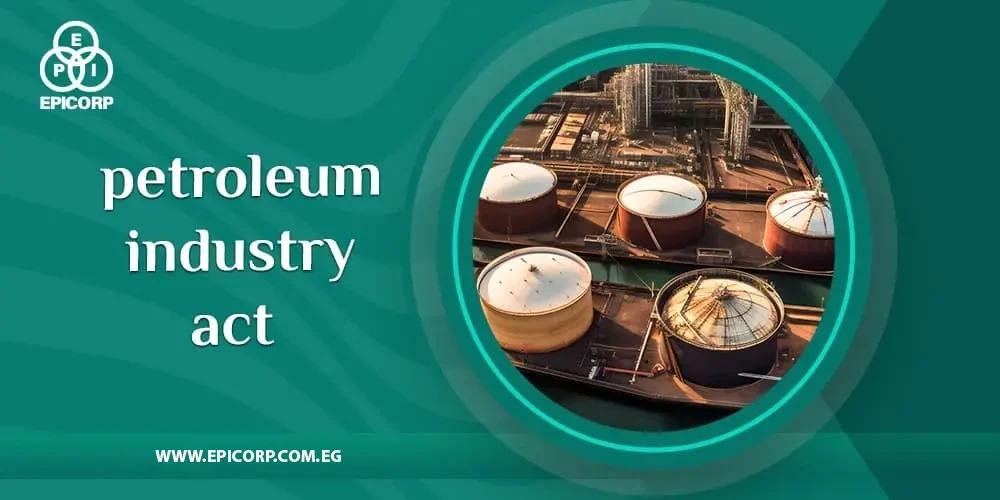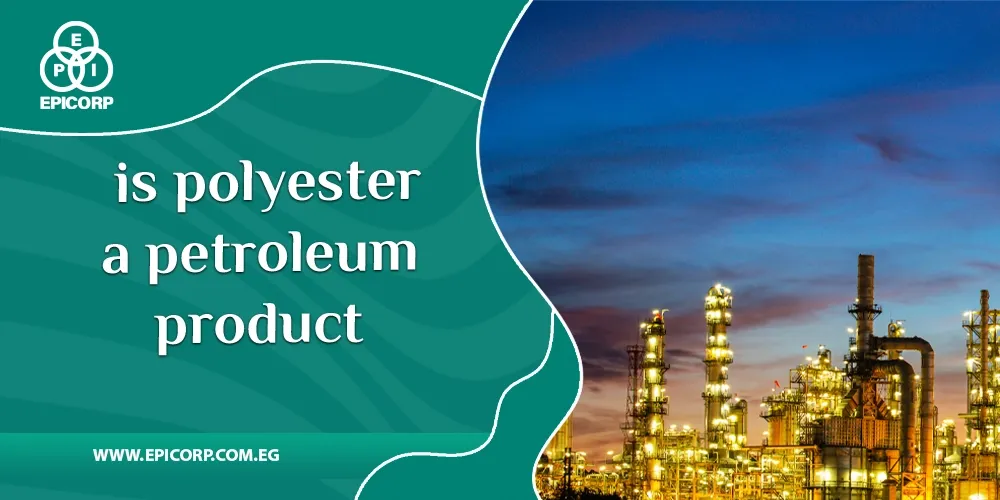what is crude petroleum? Crude petroleum, often referred to simply as crude oil, is a naturally occurring, unrefined hydrocarbon mixture found beneath the Earth’s surface. It is composed of a complex combination of organic compounds, primarily consisting of hydrogen and carbon atoms, with smaller quantities of sulfur, nitrogen, and other elements.
Crude oil is a vital natural resource that serves as the raw material for the production of various fuels, such as gasoline, diesel, and jet fuel, as well as numerous other products including plastics, lubricants, and petrochemicals. So in the following paragraphs we will discuss what is crude petroleum?
Table of Contents
ToggleWhat is crude petroleum
what is crude petroleum? commonly known as crude oil, is a naturally occurring, unrefined mixture of hydrocarbons found beneath the Earth’s surface. It is formed over millions of years from the decomposition of organic materials such as plankton and algae, which are buried and subjected to heat and pressure deep within the Earth’s crust.
Crude petroleum varies in composition, density, and color depending on its source, with some deposits containing higher proportions of certain hydrocarbons than others. It serves as the primary raw material for the production of various fuels, including gasoline, diesel, and jet fuel, as well as numerous other products such as plastics, lubricants, and petrochemicals.
Crude petroleum is typically extracted from underground reservoirs using drilling techniques and then transported to refineries where it undergoes a refining process to separate and purify its components into different usable products.
Read also: Petroleum Industry Definition.
How is crude petroleum made?
In addition to what is crude petroleum? Crude petroleum, or crude oil, is formed over millions of years through a natural process known as petroleum formation or petroleum generation. Here’s how it happens:
1. Organic Matter Accumulation:
It begins with the accumulation of organic matter, primarily microscopic plankton and algae, in marine environments such as oceans and lakes. These organisms die and sink to the ocean floor or lakebed, where they are buried by layers of sediment.
2. Heat and Pressure:
As more sediment accumulates over time, the organic matter becomes buried deeper beneath the Earth’s surface. The weight of the overlying layers compresses the sediment, increasing temperature and pressure in the buried layers.
3. Diagenesis:
Over millions of years, the heat and pressure cause the organic matter to undergo a process called diagenesis, where it transforms into a waxy material known as kerogen. This process involves the chemical alteration of the organic matter, converting it into complex hydrocarbon compounds.
4. Catagenesis:
With further burial and heating, kerogen undergoes a process called catagenesis, where it is converted into liquid and gaseous hydrocarbons. This process involves the breaking of chemical bonds within the kerogen molecules, resulting in the formation of crude oil and natural gas.
5. Migration and Accumulation:
Once formed, crude oil migrates upward through porous rock layers, such as sandstone or limestone, until it becomes trapped beneath impermeable layers, forming reservoirs or deposits.
6. Exploration and Extraction:
in addition to what is crude petroleum? Oil exploration companies use various techniques, such as seismic imaging and drilling, to locate and extract crude oil from underground reservoirs. Once extracted, crude oil is typically transported to refineries where it undergoes refining processes to separate and purify its components into different usable products.
Get to know: What Is Petroleum Energy
What is crude petroleum used for?
Speaking about what is crude petroleum? Crude petroleum, or crude oil, is used for a wide range of purposes across various industries. Some of the primary uses of crude petroleum include:
1. Fuel Production:
The largest use of crude petroleum is for the production of fuels such as gasoline, diesel, jet fuel, and heating oil. These fuels power vehicles, aircraft, ships, and industrial machinery, providing energy for transportation, heating, and electricity generation.
2. Petrochemicals:
Crude petroleum is a crucial raw material for the production of petrochemicals, which are used to manufacture a diverse array of products, including plastics, synthetic fibers, rubber, solvents, fertilizers, pesticides, and pharmaceuticals.
3. Lubricants:
what is crude petroleum? Crude oil is refined to produce lubricating oils and greases, which are used to reduce friction and wear in machinery and engines, such as those in automobiles, aircraft, industrial equipment, and appliances.
4. Asphalt:
Crude petroleum is processed into asphalt/bitumen, which is used in the construction of roads, highways, airports, and other infrastructure projects as a binder for aggregates in asphalt concrete.
Here’s: Solid Waste Management In Petroleum Refineries.
5. Waxes:
Crude oil contains waxy compounds that can be refined into various types of waxes used in candles, cosmetics, polishes, coatings, and packaging materials.
6. Hydrocarbon Gasses:
Natural gas, propane, and butane are byproducts of crude petroleum refining and are used as fuels for heating, cooking, and electricity generation, as well as in industrial processes and petrochemical production.
7. Specialty Products:
Crude petroleum can also be processed to produce specialty products such as naphtha, solvents, aromatics, and aviation fuels, which have specific applications in various industries.
Read also: Oil Refinery Waste Products.
Why is crude petroleum important?
When it comes to what is crude petroleum? Crude petroleum is important for several reasons:
1. Energy Production:
- It serves as the primary source of energy for transportation, heating, and electricity generation. Refined products derived from crude oil, such as gasoline, diesel, and jet fuel, power vehicles, aircraft, ships, and industrial machinery, contributing to economic activity and global mobility.
2. Industrial Feedstock:
- Crude petroleum is a crucial raw material for the production of a wide range of industrial products, including plastics, fertilizers, synthetic fibers, pharmaceuticals, and cosmetics. These products play essential roles in various sectors, such as manufacturing, agriculture, healthcare, and consumer goods.
Read also: Petroleum Refinery In Modern Times.
3. Economic Importance:
- The crude oil industry is a significant driver of economic growth and employment in many countries. It creates jobs directly through exploration, extraction, refining, and distribution processes, as well as indirectly through related industries and services.
4. Revenue Generation:
- In addition, what is crude petroleum? Crude oil exports generate substantial revenue for oil-producing countries, contributing to their economic development and government budgets. The sale of crude oil can also influence international trade balances and geopolitical relationships.
5. Versatility:
- Crude petroleum is a versatile resource that can be processed into various products to meet diverse consumer and industrial needs. Its adaptability and widespread availability make it a crucial component of modern society’s infrastructure and way of life.
Hers’s: What Are The 10 Uses Of Petroleum.
Conclusion
In conclusion, What is crude petroleum? crude petroleum is an indispensable natural resource that plays a pivotal role in modern society. Its complex composition of hydrocarbons serves as the foundation for the production of vital fuels and a myriad of other essential products. As global energy demands continue to rise and technological advancements drive innovation in extraction and refining processes.
According to EPICORP, the importance of crude oil remains paramount in sustaining economic development and meeting the diverse needs of populations worldwide. However, its finite nature and environmental impact underscore the necessity for continued research into alternative energy sources and sustainable practices to ensure a balanced and resilient energy future.
FAQ
What is the difference between petroleum and crude petroleum?
Petroleum and crude petroleum are terms often used interchangeably, but they refer to slightly different concepts. Crude petroleum specifically refers to the raw, unrefined form of petroleum as it is extracted from the ground. It is a complex mixture of hydrocarbons and other organic compounds found naturally beneath the Earth's surface. Petroleum, on the other hand, is a broader term that encompasses both crude petroleum and its refined products. Once crude petroleum is extracted, it undergoes a refining process to separate it into various components such as gasoline, diesel, jet fuel, and other products.
What are the advantages of crude petroleum?
crude petroleum stands as a versatile and indispensable resource, offering a multitude of advantages across diverse sectors. Its ability to be refined into various products, including fuels, petrochemicals. With a high energy density and global availability, crude petroleum drives economic growth, supports infrastructure development, and fosters technological innovation. Despite efforts to transition to renewable energy sources, the reliability, versatility, and economic significance of crude petroleum underscore its enduring importance in shaping modern economies and lifestyles.



